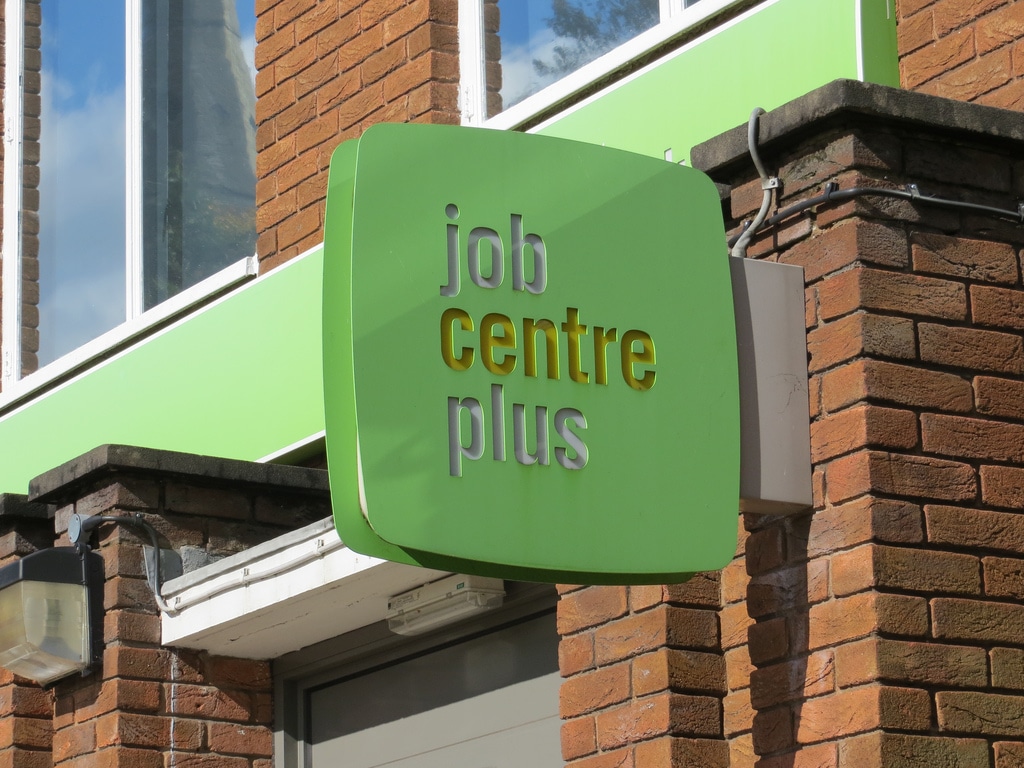Jasmine Birtles
Your money-making expert. Financial journalist, TV and radio personality.


Standard allowance
The standard Universal Credit monthly payment will increase from £265.31 to £292.11 for single claimaints aged under 25. The payment for those over 25 will increase from £334.91 to £368.74.
Joint claimants – couples in the same household – will get £458.51 per month if they are both under 25, up from £416.45. Joint claimants will get £578.82 if at least one of them is over 25, up from £525.72.
Children – extra amounts for first and second children
These payments are made to parents claiming Univeral Credit. Most only get extra payments for up to two children, but those whose children were born before April 6, 2017 or were claiming for three or more children before that date can get payments for additional children.
First-child payments to parents with children born before April 6, 2017 will increase to £315, up from £290. Payments for children born after April 2017 and second children/additional children will increase from £244.58 to £269.58.
Parents will disabled children can get additional payments. These rise from £132.89 to £146.31 for parents of disabled kids, and up to £456.89 from £414.88 for parents of severely disabled children.
If you have a disability or health condition
People with disabilities or health conditions that limit their ability to work can get extra on top of their standard Universal Credit payments.
Those eligible for the Limited Capability for Work amount will get their payments increased from £132.89 to £146.31. The Limited Capability for Work and Work-Related Activity amount will rise from £354.28 to £390.06
Carers
Payments to carers who look after somebody for 35 hours a week will increase from £168.81 to £185.86.
Childcare costs
Universal Credit recipients who are working can claim back up to 85% of their childcare cost up to a maximum amount. Unlike other aspects of Universal Credit, that allowance is not being increased from April. It will remain at £646.35 for one child and £1108.04 for two or more.
Universal Credit is a single payment for people who are looking for work or on a low income. Since its roll-out in 2013, it replaced all the various bits and pieces of benefits and credits you used to get:
The main differences between Universal Credit and the former welfare system are:

Some of the changes caused by Universal Credit:

Universal Credit affects anyone claiming benefits or tax credits. Instead of having different payments or credits coming in, you now get one payment – plus perhaps separate help with council tax and a few other bits.


If you think you should be receiving Universal Credit, make sure you have a bank or building society account which allows you to make direct debits and standing orders. Check our advice on choosing the best bank accounts for you. You might also want to consider opening an account with a Credit Union – our article is full of advice on the benefits of joining one, and where your nearest one is.
If you live with your partner, you’ll have to make a joint claim even if your partner is in work. Your claim is assessed on household income even if you’re not married – so if your partner earns over a certain amount, or has over £16,000 in savings, you won’t be eligible. If you’re both eligible for the benefit, you can get one joint payment sent into your joint account. This will enable you to budget more effectively.
Next, start budgeting. Have your direct debits in place so you don’t need to worry about things like rent when it comes to paying it. Having an account that allows you to set up direct debits and standing orders will help. If you need more assistance, our budget planner can help get your finances in order.
Finally, go online. Although you can use the service even without internet access, you might want to find out where in your area you can use the internet for free.
Pension Credit now consists of two elements:
The first one tops your weekly income if it’s below £167.25 for a single person. Savings Credit is an additional payment for those who have savings towards their retirement.
Not sure if you’re eligible? Check here.
The Government website offers a comprehensive guide to all things Universal Credit. Also, the Money Advice Service has an easy-to-follow action plan.
You can also ask us! Type your question in the comments box below and we’ll answer it as quickly as possible.

I am a single parent and am asking if id be better off on UC as I earn part time wage and have 2 children. I dont want it to affect getting cc or finance or a mortgage later in life..what do you suggest. The calculator online, how accurate are they?
Hi I am going through very stressed full time. I am a single mother and carer for my daughter with autism. I was getting income support, carer’s allowance. Dla. Hosing benefits child tax credit and child benefit to carry on our daily life. But now I moved to UC and the same benefits but the amount is cut down a lot clearly. I contacted UC but they are not giving me satisfactory response. I mean amount is cut down clearly and no changes in circumstances. What to do?
It depends what circumstances you have shown, there is an online calculator which shows how much you can get in UC before applying, you should have used it before applying for UC. What you need to do now is to consult and take advice. Also I think you can get some extra support like LCW, DA, PIP and CA. You need to check your eligibility for each one of them.
Hi,
I have a small company and wasn’t able to find a project for a couple of months now and now I’m struggling to pay rent. I was not entitled to any government support since June 20. My partner did not work for a few months as he broke his arm. This is the first month he has earned which equated to the rent value. But it has been spent on other necessities as we had no income for a while. What would be the outcome of the Universal Credit? We just need 1 month help. No savings. Thank you
Hi Lara, Sounds like a tough situation. When you say you weren’t able to claim Govt support, do you mean from things like the Self-Employed Income Support Scheme? Or Universal Credit? If you have no savings, and a small household income between both of you, you should be able to apply for Universal Credit. Being self-employed, you’d report your earnings and expenses on a monthly basis – so you can stay on it longer instead of needing to re-apply every time you have a slow month. If you have a month or two of good profit, this is taken into… Read more »
Dear Annie, thank you so much for your response, very helpful. I am a director of the company (treated as self employed for government support (as I understand it). I did not work for 3 months and didn’t furlough either, I was hoping to find a contract fairly quickly which didn’t happen. I receive min. salary (payslip) from my company but no cash transaction happens as there is no income coming to the company, so can’t really receive the payment. If I apply for universal credit, do I say I received nothing, even though my payslip says something else? Thank… Read more »
Hi Lara, Self-employed Ltd directors really got the tough end of it in terms of Govt support, didn’t they? I’m not surprised things are difficult for you at the moment. When you apply for Universal Credit, you need to show the money that’s gone into your personal account (usually the last three months) – so if the cash is still in the company’s account, you don’t need to tell them about that (as you can’t use it for your own expenses, because it technically belongs to the company). So, if you have a payslip but you didn’t actually move the… Read more »
My husband is on the support side of EESA, after having two lots of cancer the most resent last month. Will he get universal credit. As I pay the bills because he is not well enough to do SK.
hi there. I checked this with our friends at www.turn2us.org.uk and they said “this depends on their circumstances and where they are living as Universal Credit is still being rolled out throughout the country. We would encourage them to use our welfare benefit calculator at Turn2us.org.uk to find out if he will receive Universal Credit.”
Hope that helps 🙂
All those years it worked as giving rents directly to council than why this change. It’s to get people into problem and get them out to a poorer area.
I would like to know if you were on it, would you be informed if you were elegebal for some of the other benefits, which it includes out of the 5 that you could be entitled to but dont claim
Sounds like a good idea, it is certainly more efficient!
Not for people with mental health issues that make it difficult to manage money. A feature of Bipolar Disorder when having an episode is reckless spending.